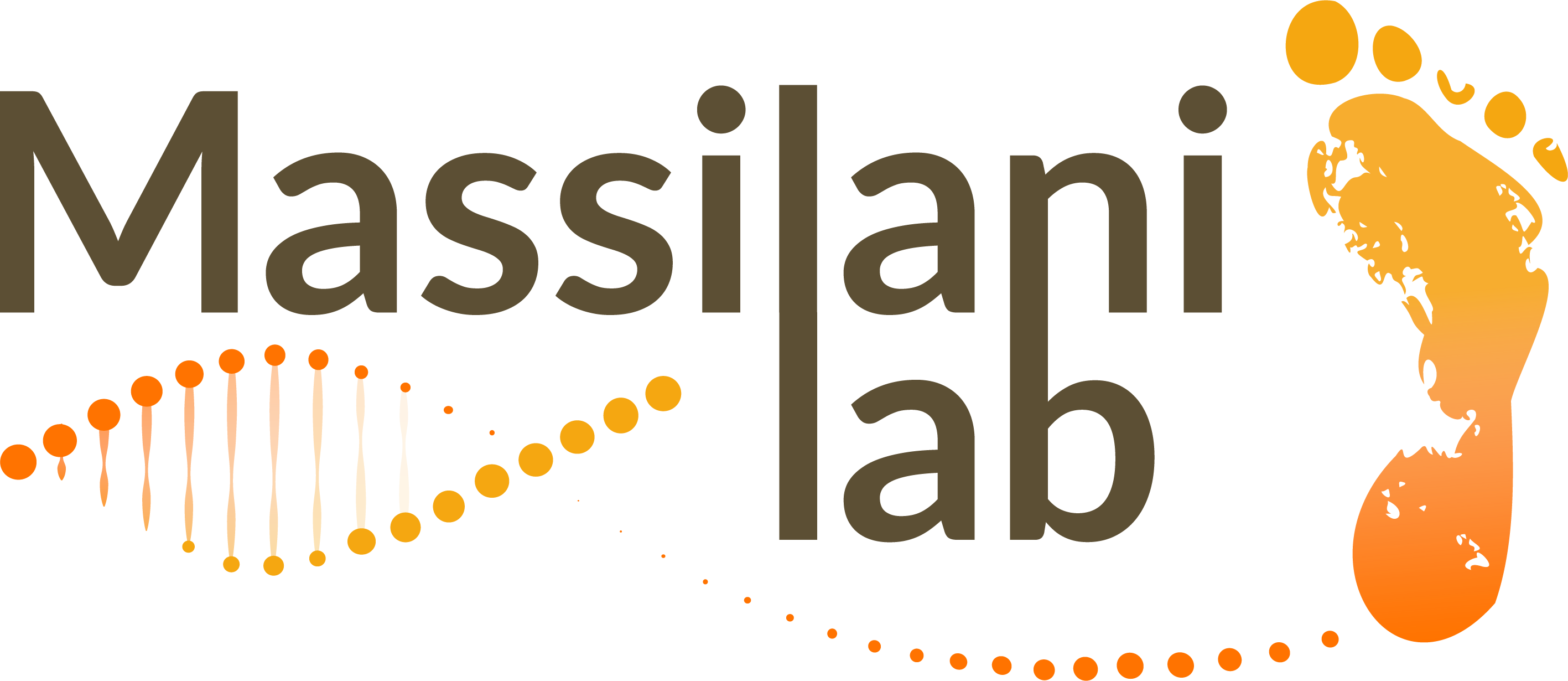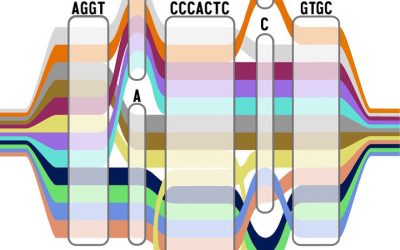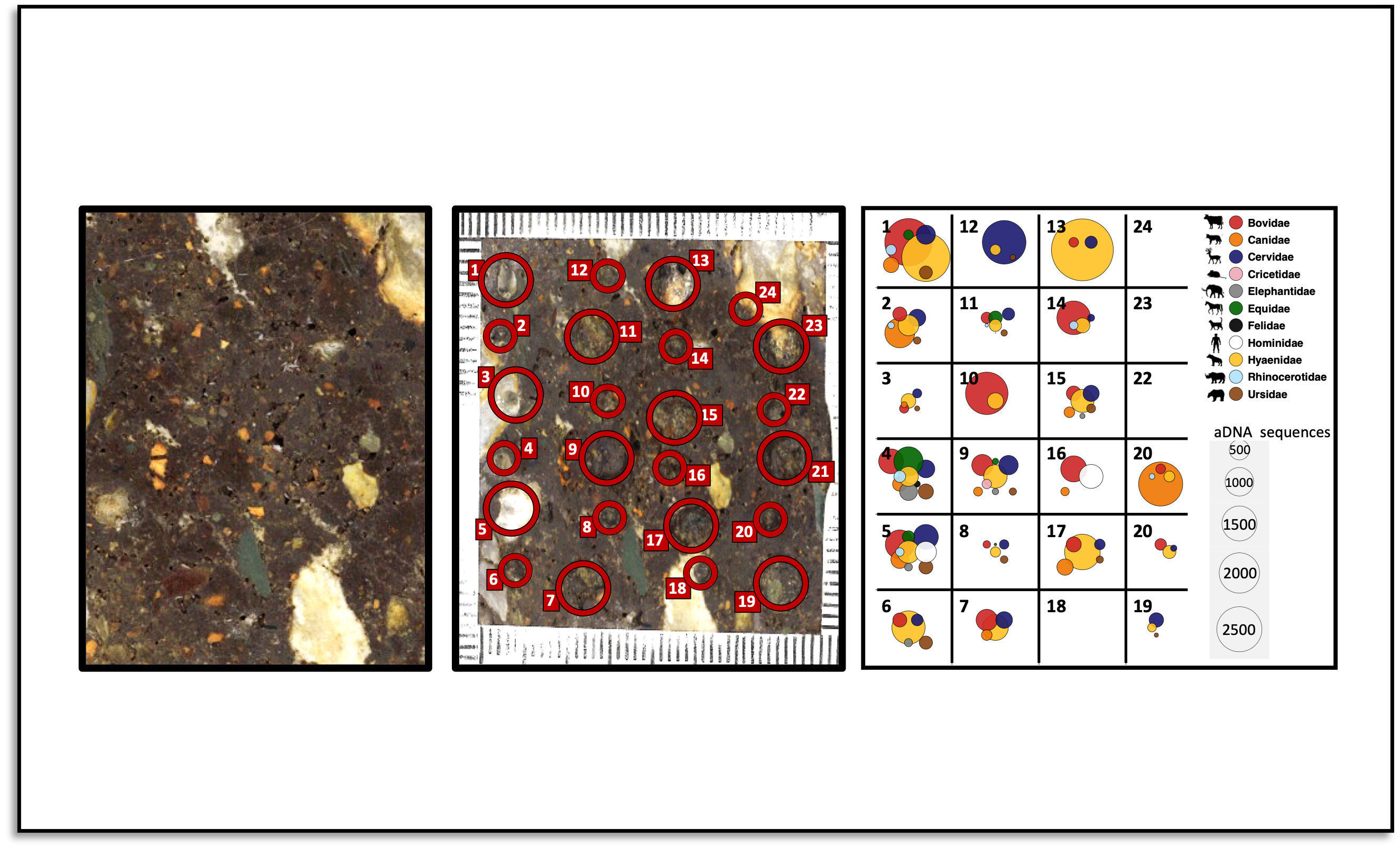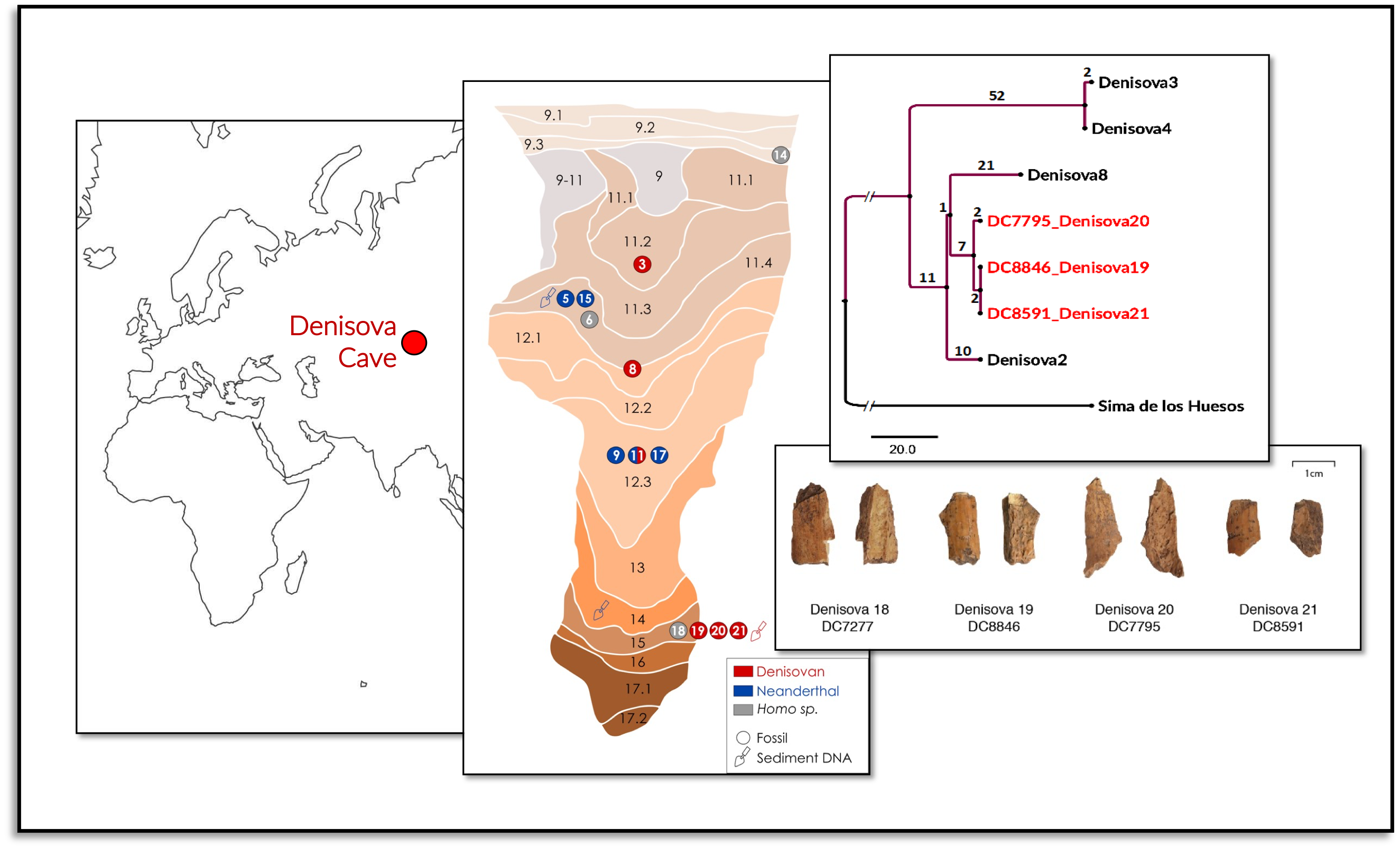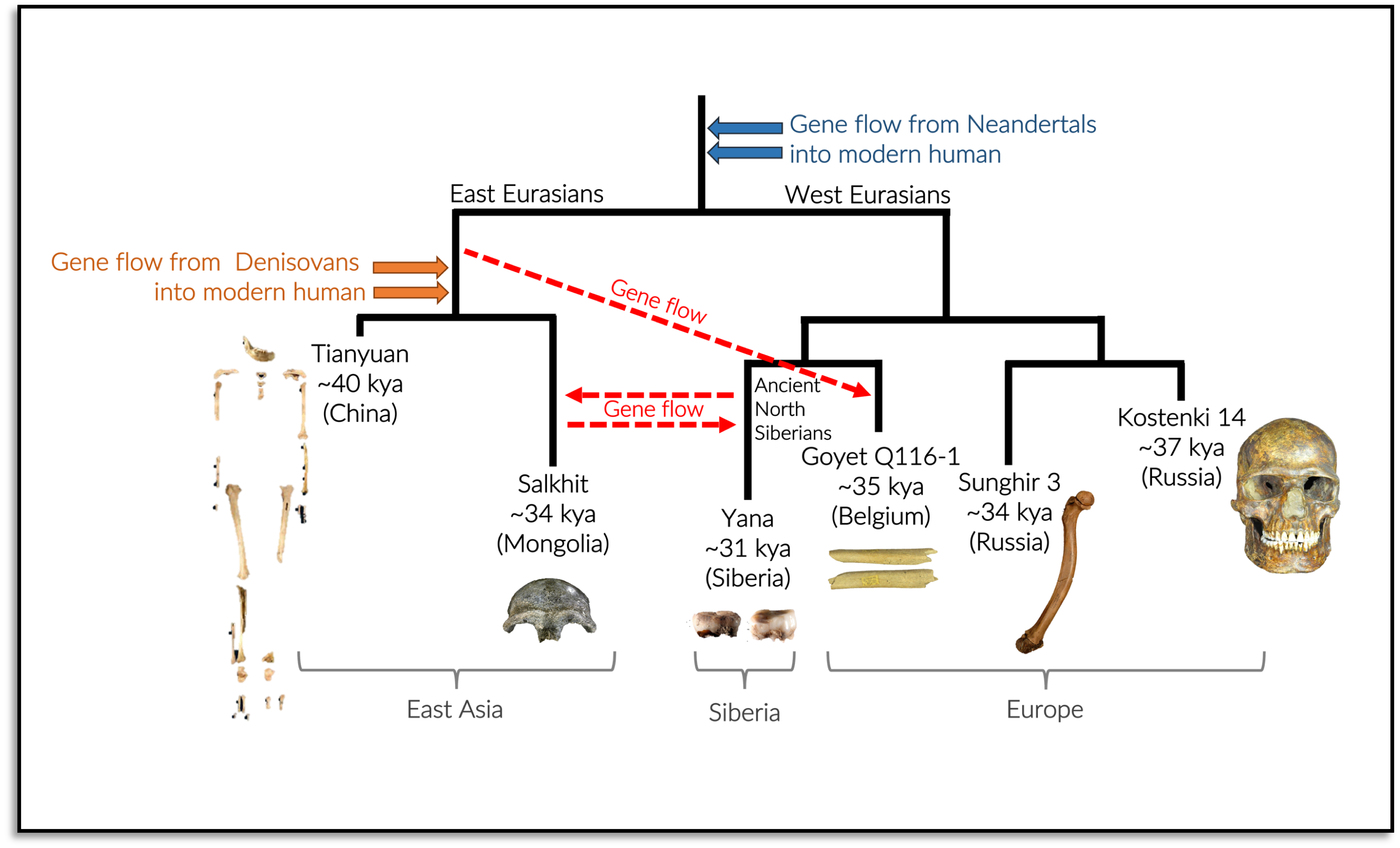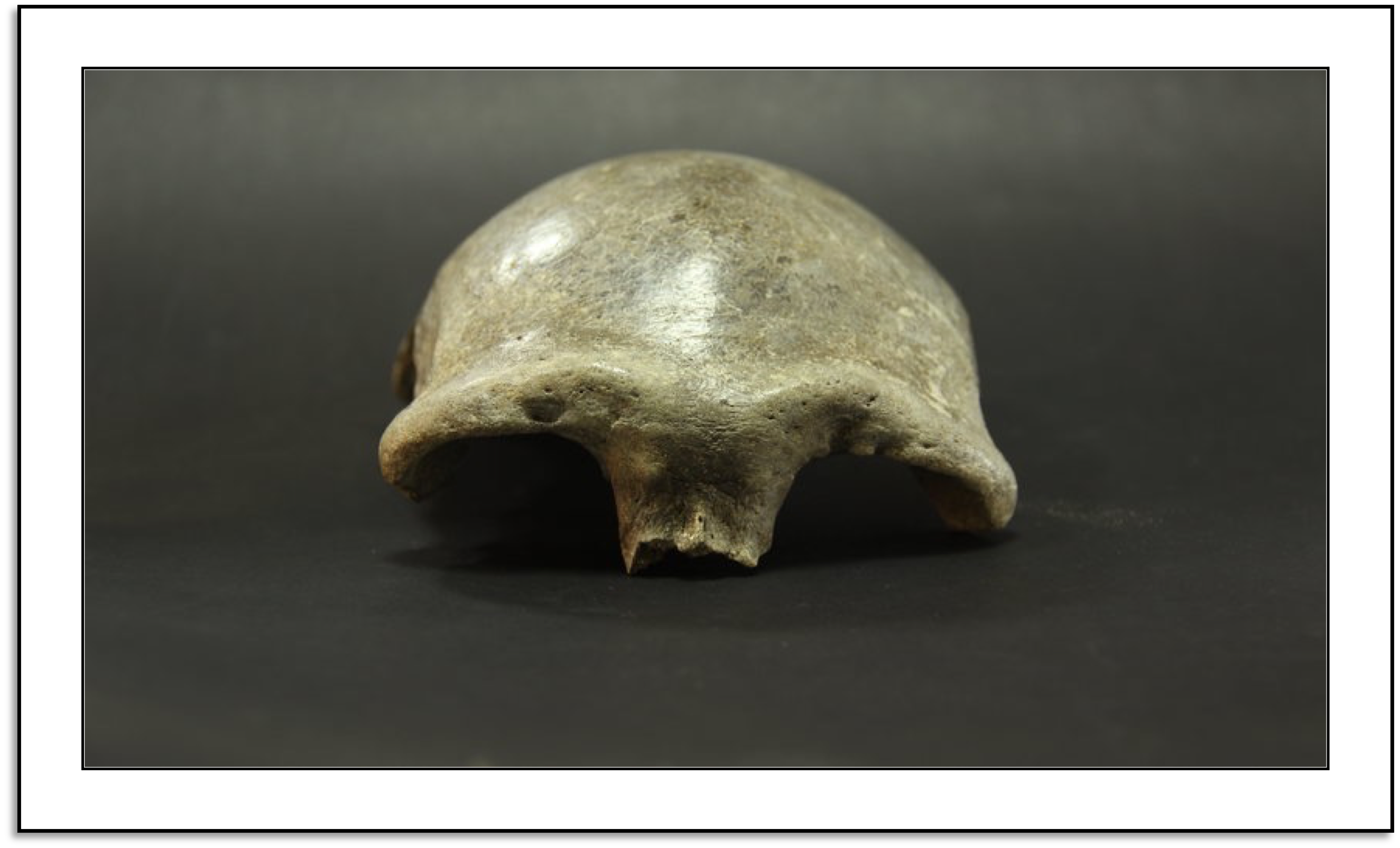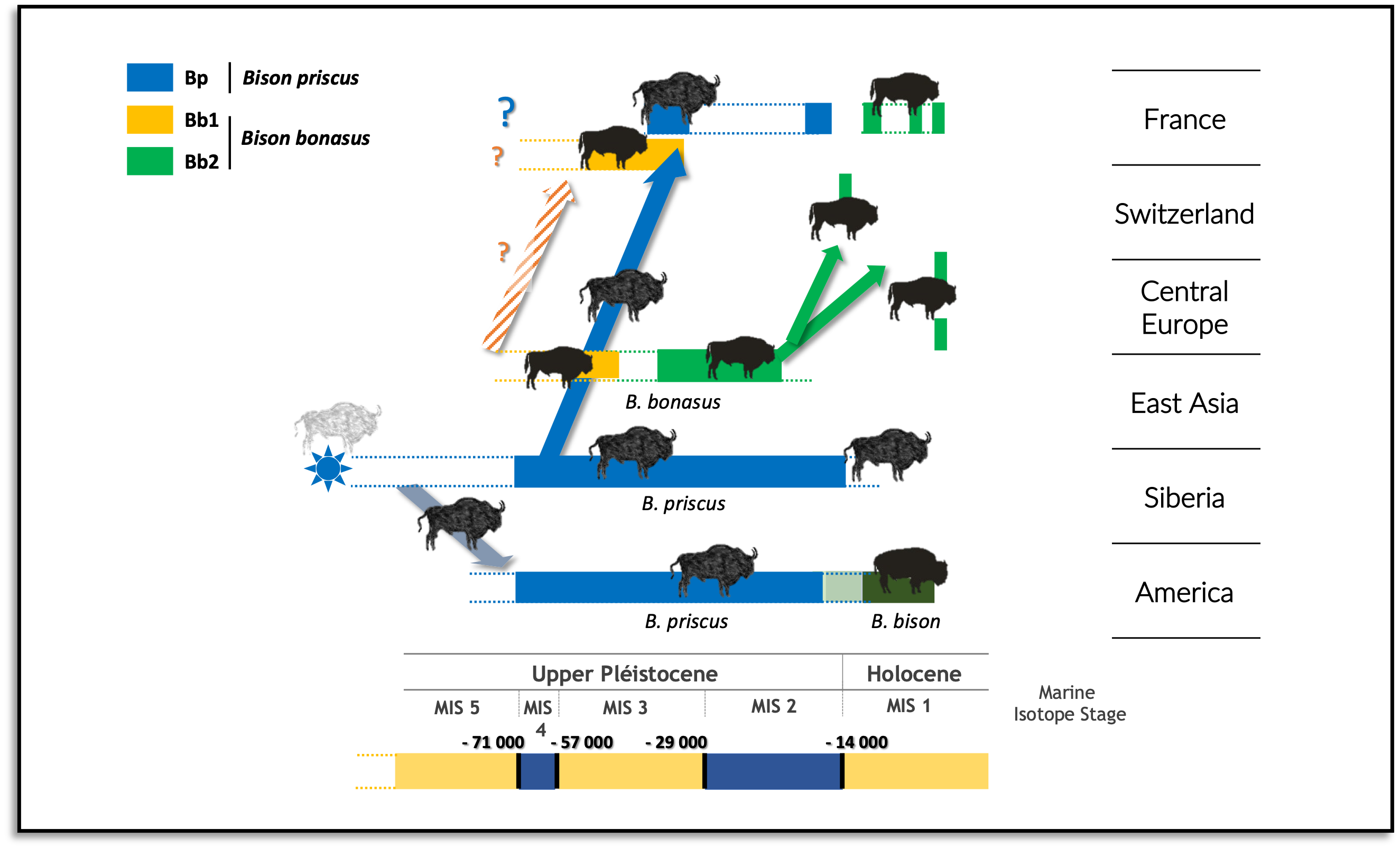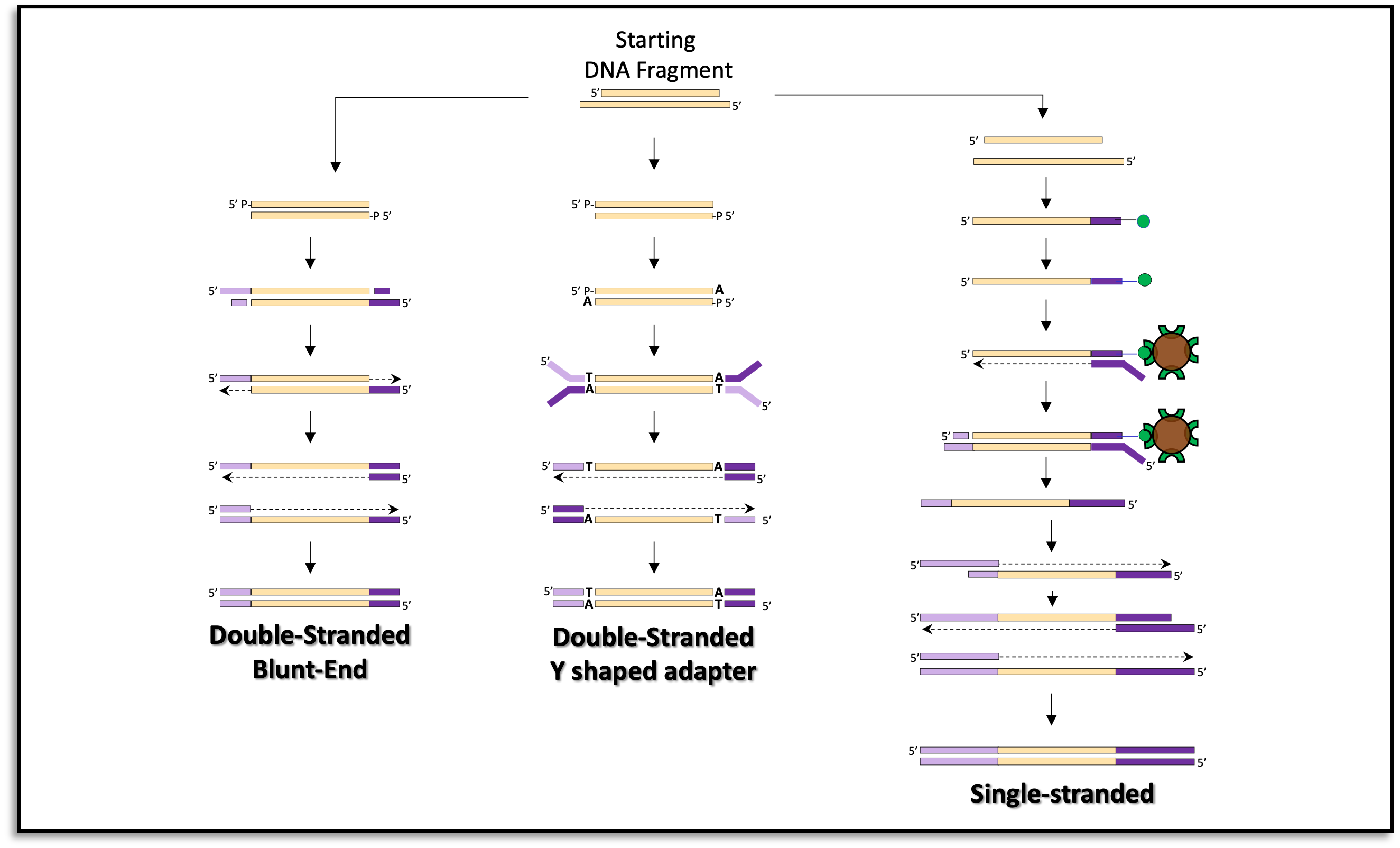
Ancient DNA at Yale University
We investigate the evolutionary history of modern and extinct human populations using ancient DNA.
Our focus is to retrieve and sequence DNA from archaeological materials to study the peopling of the world, the history of human health and their adaptation to different environments and lifestyle conditions.
News
PhD Opportunities in our Lab through Yale’s Human Genome Science Track
We're excited to announce that our lab is now an affiliate of the Human Genome Sciences graduate...
Picnic and Portrais – Lab Spring/Summer Event
To celebrate the transition from spring to summer this year, we gathered for a lovely picnic at...
We’re delighted to welcome Max Levy as a new research intern!
Max comes to us from Princeton Day School, where he studied biology from 2022 on. His project...
Research

Peopling of the World
We generate genome wide data from ancient bones and sediments in different locations that have been inhabited by humans throughout history and link different ancient human lineages to specific temporal and geographic locations and environments.
The goal is to uncover genealogical relationships, migration routes, diversification events and genetic admixtures that shaped present-day human diversity.
We are combining DNA data from archaeological bones and sediments to generate high resolution time series ancient genetic data from different point through time in space with a particular focus on under-sampled regions of the world such as East Eurasia or Africa.
Adaptation
Modern human successfully spread across the world and colonized tropical to arctic, high to low altitudes environments and adapted to different lifestyles.
This success relied on new mutations, standing genetic variations, or introgressed variations through admixture between different human groups including archaic Neanderthals and Denisovans.
We use ancient DNA from archaeological bones and sediments to investigate the origin of genetic variants targeted by selection and their association with adaptations to lifestyles and environments.
Our goal is to link presence, absence and frequencies changes of specific allele to specific events in historic and prehistoric time and uncover details about the history of human health and the origins and evolution of several adaptative traits.


Adaptation
Modern human successfully spread across the world and colonized tropical to arctic, high to low altitudes environments and adapted to different lifestyles.
This success relied on new mutations, standing genetic variations, or introgressed variations through admixture between different human groups including archaic Neanderthals and Denisovans.
We use ancient DNA from archaeological bones and sediments to investigate the origin of genetic variants targeted by selection and their association with adaptations to lifestyles and environments.
Our goal is to link presence, absence and frequencies changes of specific allele to specific events in historic and prehistoric time and uncover details about the history of human health and the origins and evolution of several adaptative traits.
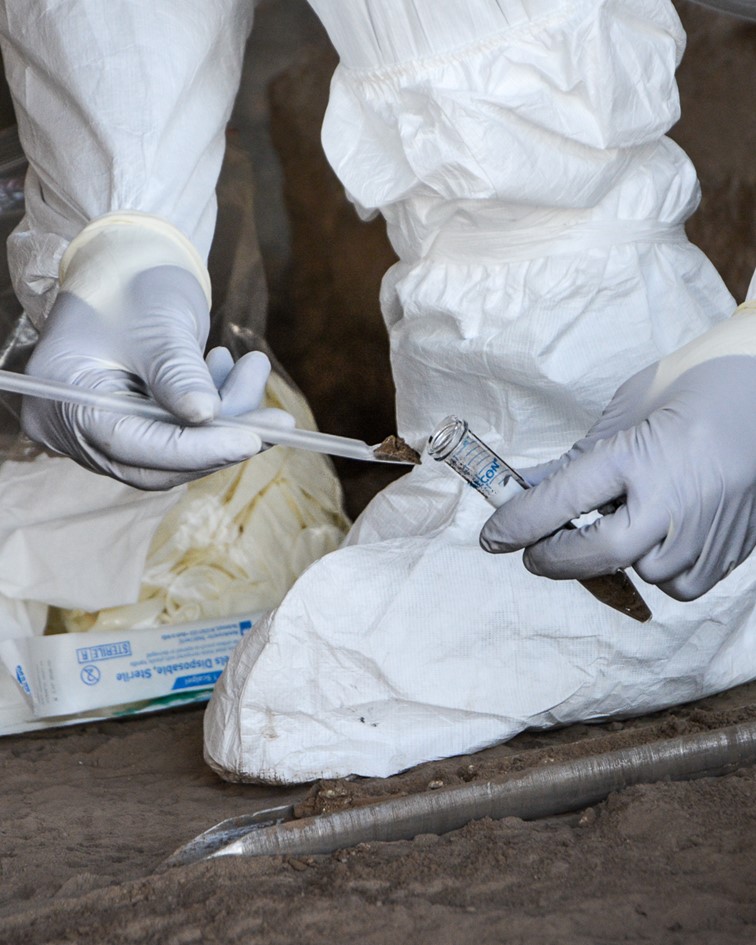
Methods for Ancient DNA
Past organisms left traces of their DNA in their environment which can be preserved from hundred thousand of years in sediments, independent of their physical remains.
The use of archaeological sediment as source of ancient DNA allows to generate genetic data of human and other organisms at sites and in regions where bone remains are not found, are rare, or cannot be accessed.
Our goal is to develop state of the art genetic and genomic approaches to better understand the factors that impact DNA preservation in different type of archaeological material (with a particular emphasis on sediment) and expand the use of sediment DNA for palaeogenetic research.
Publications
Team
Principal Investigator
Assistant Professor of Genetics
Diyendo Massilani
I have always been curious about ...
…the diversity of traits in present-day people, which led to my fascination with the genetic mechanisms of heredity and their influence on human features.
Throughout my scientific and personal journey across Gabon, France, Germany, and the US, I have integrated diverse cultural, social, and political perspectives, continually fueling my determination to explore the evolution of humankind through the study of DNA-the key to our individuality and shared humanity.
Postdoctoral Associate
Joanna H. Romeyer-Dherbey
Since I can remember, ...
… I have been curious about the human experience – unique to everyone yet shared by many. This led me to pursue various avenues of research on the forces that shape it.
I am particularly fascinated by the vast amount of information preserved within the human skeleton. In its nature, bone is a direct window into the person’s life journey and the evolutionary journey of humankind.
In my research, I utilize molecular and osteological methods to study disease, pathogen evolution and the effects of historical epidemics on human immunity. I also have been active in forensic anthropology, focusing on sex estimation methods and skeletal development.
Postdoctoral Associate
Michael James Boyle
I use ancient DNA from sediments …
… of archaeological sites to reconstruct early human population history. Sediments also contain DNA from other organisms, revealing the composition of ancient ecological communities and providing insight into the environment of early humans.
My research also explores how changes in the frequency of DNA sequence variants, potentially in response to changes in the environment, shaped human adaptation and impacted our traits.
Graduate Student
Shahar Silverman
Before coming to Yale, ...
… I conducted research on bacterial defense mechanisms and the microbiome.
I’m very interested in host-pathogen interactions, and how pathogens drive their hosts’ evolution. I am excited to learn about ancient DNA research and to apply my background in Microbiology to this field.
Postgraduate Associate
Edward Habeck IV
My undergraduate research involved ...
… analyzing bacterial taxa in soils and skeletal material to study the microbial composition of archaeological proveniences and ancient human microbiomes.
I am fascinated by humans as reflections of our environment, particularly how our lifestyle, behavioral, and physiological adaptations provide us with the distinctive resilience and diversity that characterizes our species.
Ancient DNA is an incredible resource for reconstructing past lives and experiences, and every fragment acts as a unique component of our evolutionary puzzle.
My foremost goal is to pursue a PhD with direct emphasis on ancient DNA, and I dream of contributing to our understanding of what it means to be human.
I’m thrilled to be a member of the Massilani Lab at Yale, and I hold immense gratitude for the opportunity to delve into my greatest interest.
Postgraduate Associate
Misheelt Bayarsaikhan
The exciting field of studying the health and diseases...
… of past populations through skeletal analysis sums up the focus of what I do in paleopathology. In my work I act as an archaeologist and bioanthropologist from Mongolia and I specialize in the study of ancient human remains.
I’m also deeply interested in ancient DNA and laboratory-based approaches.
I am grateful to be here in the Massilani Lab at Yale. I am eager to begin a new chapter in my career.
Yale Pathways Research Intern
Eleanor Law
This is my first experience ...
…in a lab environment, and I am learning new things about biology and genetics each day from my mentor, Shahar, as well as my fellow lab mates.
Working in a lab has been an amazing experience, allowing me to get a hands-on understanding of the incredible capabilities of science in deciphering ancient human DNA.
POSTGRADUATE ASSOCIATE
NIH PREP Scholar
Phoebe Demers
A passion for the preservation ...
…of the natural world fuels my ambition to contribute to the fields of conservation genetics and de-extinction.
I am eager to apply my background in biomedical engineering to the study of ancient DNA, which I aspire to use to guide rewilding efforts of endangered species.
Values
The Massilani Lab ought to represent the cultural blend of our society.
My mentorship philosophy is to build a cordial, open and trusting work environment where people can freely express their authentic self and opinions.
As a scientist, I believe that the freedom to be our authentic selves, brings depth and meaning to our interactions and fosters a shared investment and commitment that will benefit our science tremendously.
I want to build an inclusive team where every member feels responsible for maintaining a safe and equitable work environment for all.
As a mentor, I will provide to my lab member the support they need to have an equitable access to opportunities regardless of their background, their ethnicity, country of origin, physical and mental abilities, gender, and sexual orientation.
My goal is to foster intellectual and personal freedom as a mean to promote talent, creativity, and growth.
Contact
post address:
Massilani Lab
Yale Genetics
PO BOX 208 005
New Haven, CT 06520 8005
address:
Massilani Lab
333 Cedar Street
Sterling Hall of Medicine – I wing, rooms 225, 219, 234c
New Haven, CT 06510, USA
